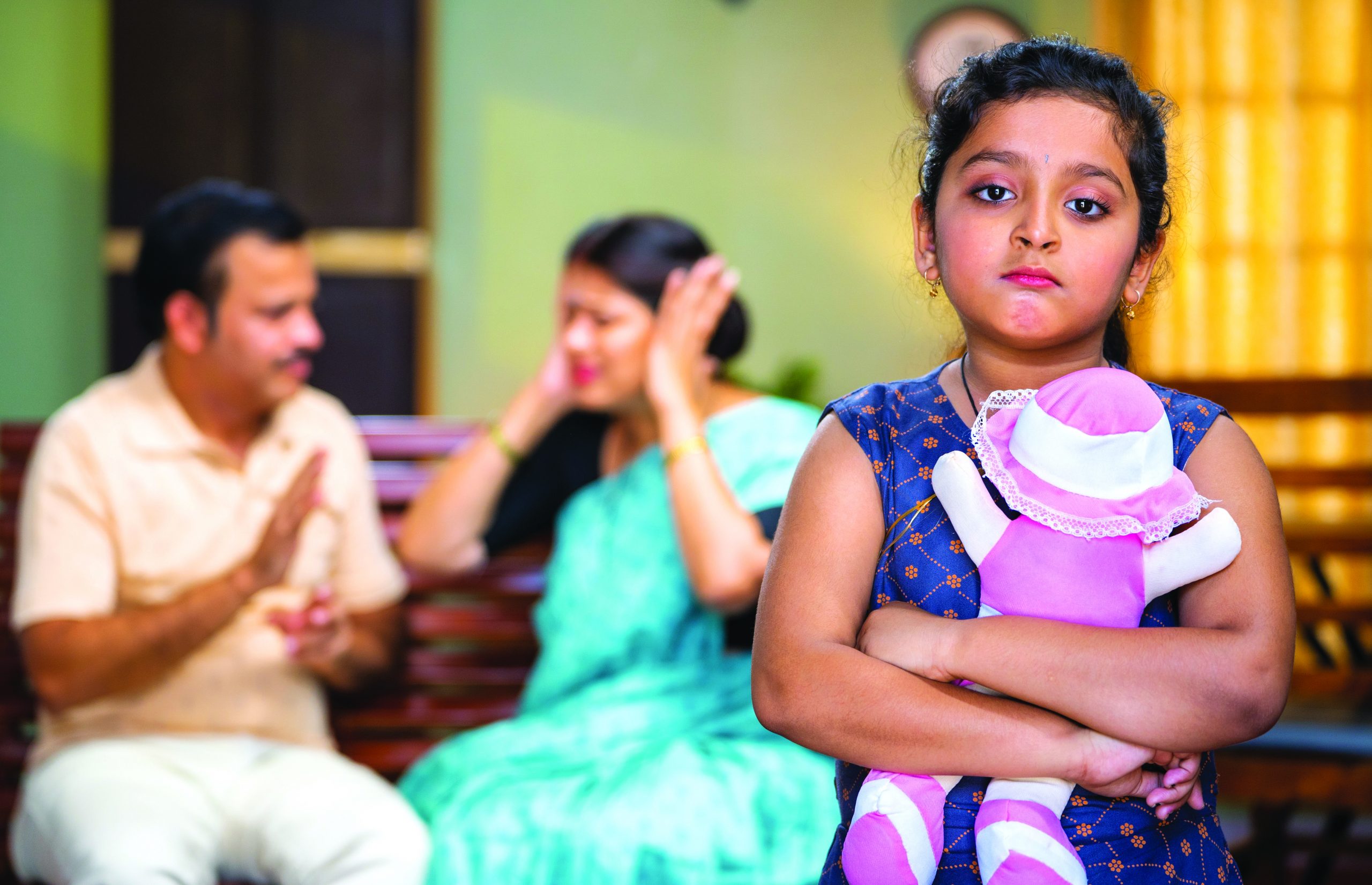Children love family life and invariably suffer anxiety and insecurity when parents break up. Here are some ways parents can help children adjust to divorce writes Belcia Prakash

For children, separation and divorce of parents is an emotionally draining experience. While parents going through divorce spend most of their time sorting out their own feelings of hurt, rejection and bitterness, children who witness arguments and recrimination suffer their own roller coaster of emotions. Children love family life and invariably suffer anxiety and insecurity when parents break up. Therefore, it’s important to give them time to adjust to the new situation and make efforts to create a peaceful home environment. Parents and children need to learn to move on with grace and confidence. Here are some ways parents can help children adjust to divorce:
Reassure them that the new situation will be better. Dr. Shachee Dalvi, a Mumbai-based child and women psychologist, says that she encourages parents to communicate with children forthrightly about divorce and how the new situation might be better for all. “There are two situations, A and B. Situation A is a home where parents are constantly fighting and quarrelling and Situation B, in which parent lives separately but they continue to speak and meet each other as friends. Your child is likely to prefer Situation B where parents live away from each other but maintain civility,” says Dr. Dalvi who adds that emphasising the positives of divorce goes a long way in children accepting the marital break-up.
Prepare your child to answer divorce questions from friends/relatives. Parents need to prepare their children to answer tough questions about divorce from peers and relatives without hesitation. Teach them what they can tell others. For example: “Children can be advised to tell friends that your parents have decided to live apart, adding that it is their personal decision, and I respect it, so please don’t ask me more questions.”
Be frank and forthright. It’s necessary for parents to be transparent with their children about a divorce and new living arrangements. They need to be told exactly what to expect. For example: “You will live with Mommy but can visit Daddy and spend time with him on some weekends and holidays.”

Dr. Shachee Dalvi
Try gradual separation. To enable children adjust to the new situation, parents should ensure that the separation is gradual rather than abrupt. This will help them become mentally accustomed to the disruption in their home and social life. “This gradual separation process may not always be possible, but if it can be done, it will help children cope better with the disruption in their lives,” says Dr. Dalvi.
Spend quality time with children. While all children need quality time with parents, those experiencing parental separation need it all the more. “Spend at least 30 minutes every day with your child, minus criticism, lectures or gadgets. Allow her to decide how she wants to spend the time together. It can be anything from just talking to playing, singing, dancing. Strengthening the parent-child bond is very important to help her feel loved and secure. If possible, both parents and children should spend some time together once a month,” suggests Dalvi.
Ensure minimal disruption. It’s critically important for parents to let children know where both parents will live, how their time will be shared between parents, and how it would affect their school and social lives. During the transition, there should be minimal disruption in their daily lives.
Avoid name-calling. Parents should refrain from speaking negatively of each other before children as it will force them to take sides and hate one parent. This is important to prevent children from making biased judgements when they are not mature.
























